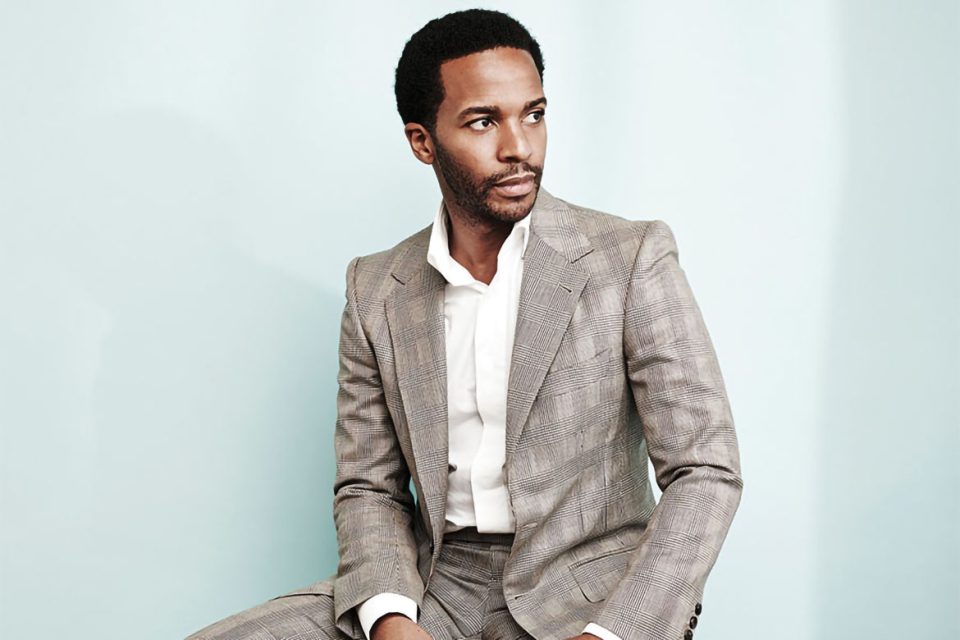As the gifted black surgeon, Dr. Algernon Edwards, of Cinemax’s period drama, The Knick, André Holland got treated like dirt for most of season one.
When Edwards attempted to share his medical expertise with the hospital’s chief surgeon, Dr. John Thackery (Clive Owen), he was curtly told, “If I want your advice, I’ll ask for it.” When he adroitly sutured a hospitalized white girl, her grimacing mum remarked, “Must you touch her so much?” After he was relegated to an office in the hospital basement, Edwards dryly intoned, “I expect these things.”
Those racially charged scenes, however, are some of Holland’s favorites.
“Because I feel they are so true,” says Holland, speaking by phone from Massachusetts, a few hours before appearing in the play Paradise Blue at the Williamstown Theatre Festival.
“I feel like I know in my DNA what it’s like to live in a place where you don’t fit in,” says the actor, who grew up in southern Alabama, where he was disparaged at times because of his skin color. “They don’t think you deserve it. They don’t think you are capable.”
His family didn’t watch a lot of TV or go to the movies much. But the entire clan — including his fire-and-brimstone preacher grandfather — would gather around the peanut barrel to unspool tales about their lives, and that is where Holland’s love of storytelling was nurtured.
“It was often mixed with this twinge of melancholy,” he recalls. “I think a lot of that was about growing up in the South and not having access to the things they wanted access to.”
Determined to educate young André in the arts, his parents enrolled him in theater camp. Acting clicked. At 11, he performed in Oliver! His first recurring television roles were in the NBC comedies 1600 Penn and Friends with Benefits. More recently, he portrayed civil rights activist Andrew Young as part of the acclaimed ensemble of Selma, Oscar-nominated as best picture.
The Knick similarly captures a moment in history. Set in a New York hospital at the start of the 20th century, the series faithfully re-creates the medical field of that time. Holland’s character — Harvard-educated and European-trained — was partly inspired by vintage photographs of black physicians whose careers flourished in more racially tolerant French hospitals.
To effectively play Edwards, Holland learned to make surgical-type incisions and sutures while navigating through spurts of fake blood. “When you get home,” he says, “it’s under your fingernails and in your hair.”
That didn’t make him as squeamish, though, as the pillow scene he shared with a cockroach at the fleabag rooming house where his character resides. “I did not enjoy that cockroach,” says Holland, who’d assumed they’d use a fake bug until the cockroach wrangler showed up.
In season two, debuting October 16, he will again perform medical procedures now considered archaic. “It blew my mind how far we’ve come,” he says. Meanwhile, discrimination, he notes, which ideally should be an anachronism, persists today.
It is sometimes hard, Holland admits, to not take the racial insults in The Knick personally. But he’s glad that his costars don’t shy from the material. “I appreciate when you go for it. I’m glad to be part of a show that, in its own way, is addressing that.”











